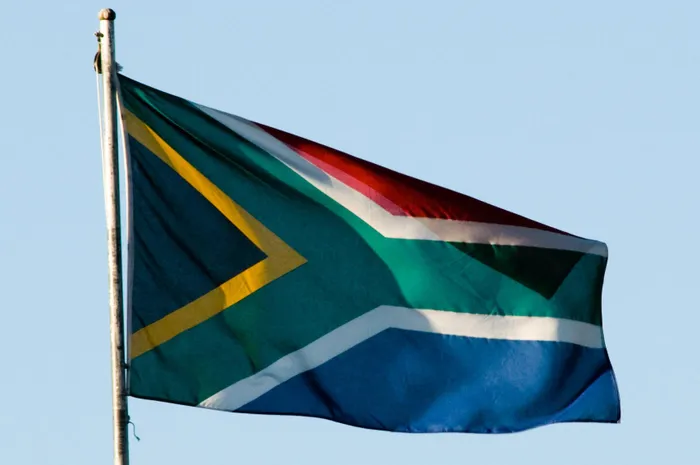
Since the late 1990s, South Africa has been participant in the global economic system.
Image: Wikimedia Commons
Since the late 1990s, South Africa has been participant in the global economic system. We have built a formal economy that is, in many sectors, efficient and globally competitive. Yet, this very engine of our prosperity is failing. It is constrained, unable to expand at a rate that reverses our chronic unemployment and stubborn poverty.
Frankly, the formal economy is failing the majority of our populace. Millions find themselves marginalised—trapped in the informal economy, underemployed, or entirely without work, devoid of a sustainable income. Deep poverty remains the stark reality for too many.
The heart of the problem is saturation. Our economic environment offers little room for organic growth. It is dominated by large industrial monopolies that control the market, while below them, micro, small and medium enterprises (MSMEs) operate in a state of hyper-competition, a brutal arena where there are often more losers than winners. This is a tragic paradox, for the MSME sector is, in fact, the true lifeblood of our nation.
With over 2.6 million entities, MSMEs contribute an estimated 35% to our Gross Domestic Product (GDP) and are the primary source of livelihood for over 11 million workers. Most critically, they account for around 60% of new jobs created each year. They are our greatest hope for mass employment, yet we are systemically allowing them to wither. The statistics are alarming: 25% of new MSMEs do not survive their first year, and a staggering 70% shutter their doors by year five.
Their failure is not due to a lack of ambition, but rather attributed to well-known barriers: financial instability, cash flow crises, and weak organisational capacity. MSMEs struggle to grow sustainably due to a combination of market and operational weaknesses.
Another critical issue is the crippling dependency on the state as the sole market—many businesses rely heavily on government contracts instead of leveraging them as a launchpad to expand into private-sector opportunities.
Furthermore, extreme levels of competition in already saturated markets make it difficult for new entrants to remain profitable, eroding margins and discouraging innovation.
Compounding these issues is weak customer relationship management, with many MSMEs failing to cultivate loyalty and referrals that are essential for sustained growth and competitiveness.
So, where is the lifeline? It lies in a fundamental and deliberate shift towards economic diversification. This is not merely a policy buzzword; it is our only viable escape route from the current economic gridlock.
The just transition to a low carbon future offers the most profound systemic opportunity to reconfigure our socio-economic landscape. Central to this discourse is the urgent need to expand existing economic opportunities and build entirely new ones.
The Komati Power Station's decommissioning has positioned it as South Africa's pioneering just transition project, a practical model for supporting workers and communities through the shift to a sustainable economy. Leading this effort, the Presidential Climate Commission (PCC) is currently acting as a catalytic force, strategically convening partners to diversify Komati's economic base.
The multi-faceted approach includes creating new employment opportunities in green industries, bolstering small businesses with skills development and mentoring, and providing essential social protection and funding. This process has yielded a critical insight: the successful economic transformation of a community is not the responsibility of a single entity but relies on a synergistic partnership between the public and private sectors.
The clean energy and climate adaptation sectors are not niche interests; they are the birthplaces of the new economy. The South African Renewable Energy Masterplan (SAREM) has already mapped a vast value chain, from the extraction of critical raw materials like lithium, copper, and vanadium to the manufacturing of final products like solar panels, wind turbines, and batteries. This is not a single industry but an entire ecosystem of opportunity.
Furthermore, beyond energy, studies point to a wealth of diversification avenues: the automotive industry, sustainable aviation fuels, eco-tourism, the cannabis and hemp sector, smart agriculture, and a built environment revolutionised by new climate-friendly technologies.
International finance mechanisms like the Just Energy Transition Partnership (JETP) can provide the initial capital, but the real work is domestic. To succeed, our MSME sector must be strategically guided towards these new horizons. The recipe for success is clear:
For MSMEs to thrive in a rapidly changing economy, they must be empowered to become pioneers in emerging sectors rather than remaining trapped in saturated markets. Success depends on understanding the market dynamics, pricing structures, required skills, and technological demands of their chosen industries.
Equally important is forging strategic linkages that integrate them into local and global value chains, strengthening their resilience and growth potential. Their business strategies should be firmly rooted in real market demand, continuously exploring new opportunities for expansion.
It is not the large, established industrial operations that will create the mass employment we so desperately need in South Africa. They are important, but they are not the primary job creators.
That mantle falls to the MSMEs. The transition from a micro-enterprise to a medium-sized one requires patience, dedication, and strategic support. Our economic future depends not on propping up giants, but on nurturing the seeds of enterprise at our grassroots.

Devan Pillay is the Executive Manager: Institutional Support at the Presidential Climate Commission.
Image: Supplied
Devan Pillay is the Executive Manager: Institutional Support at the Presidential Climate Commission.
*** The views expressed here do not necessarily represent those of Independent Media or IOL.
BUSINESS REPORT